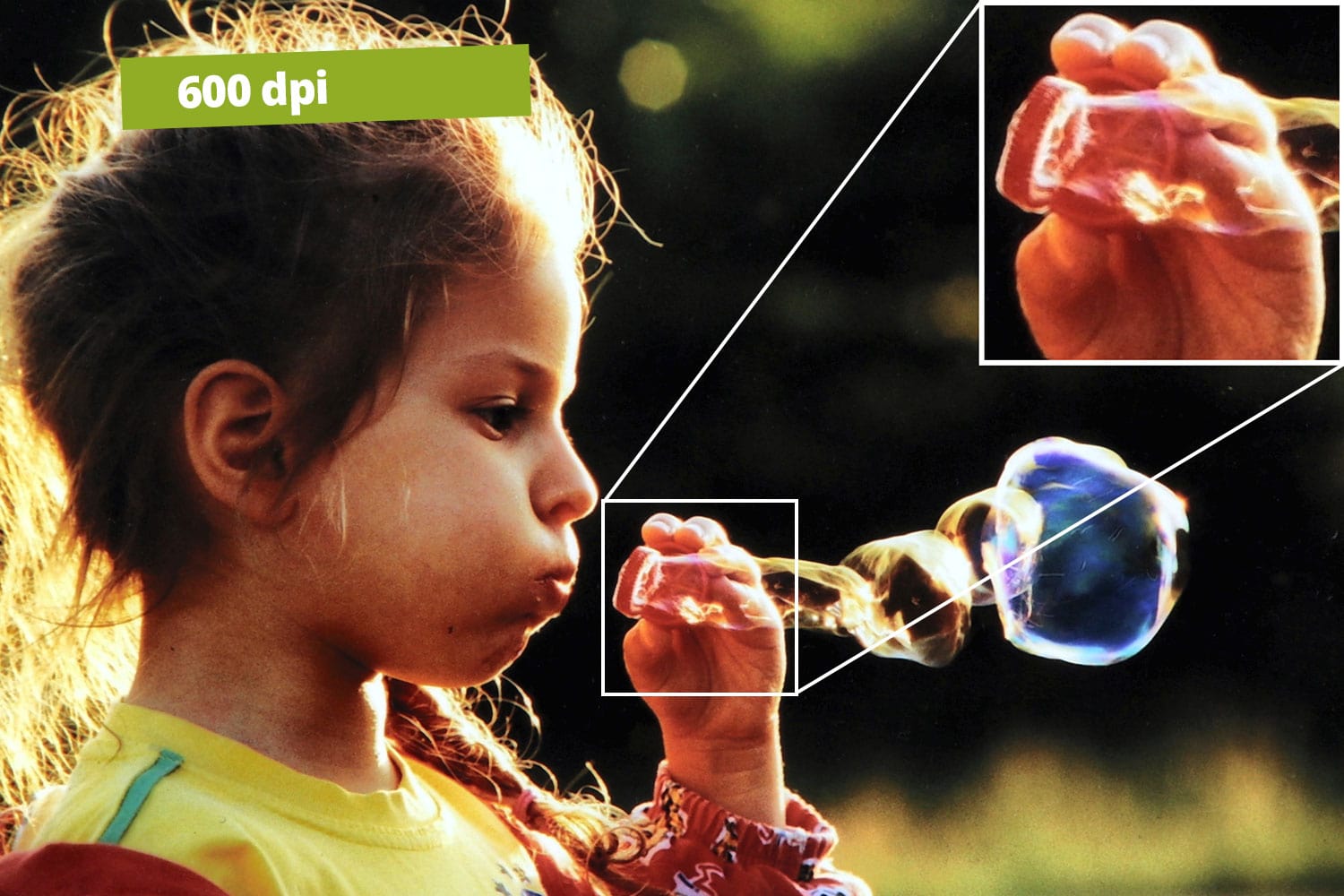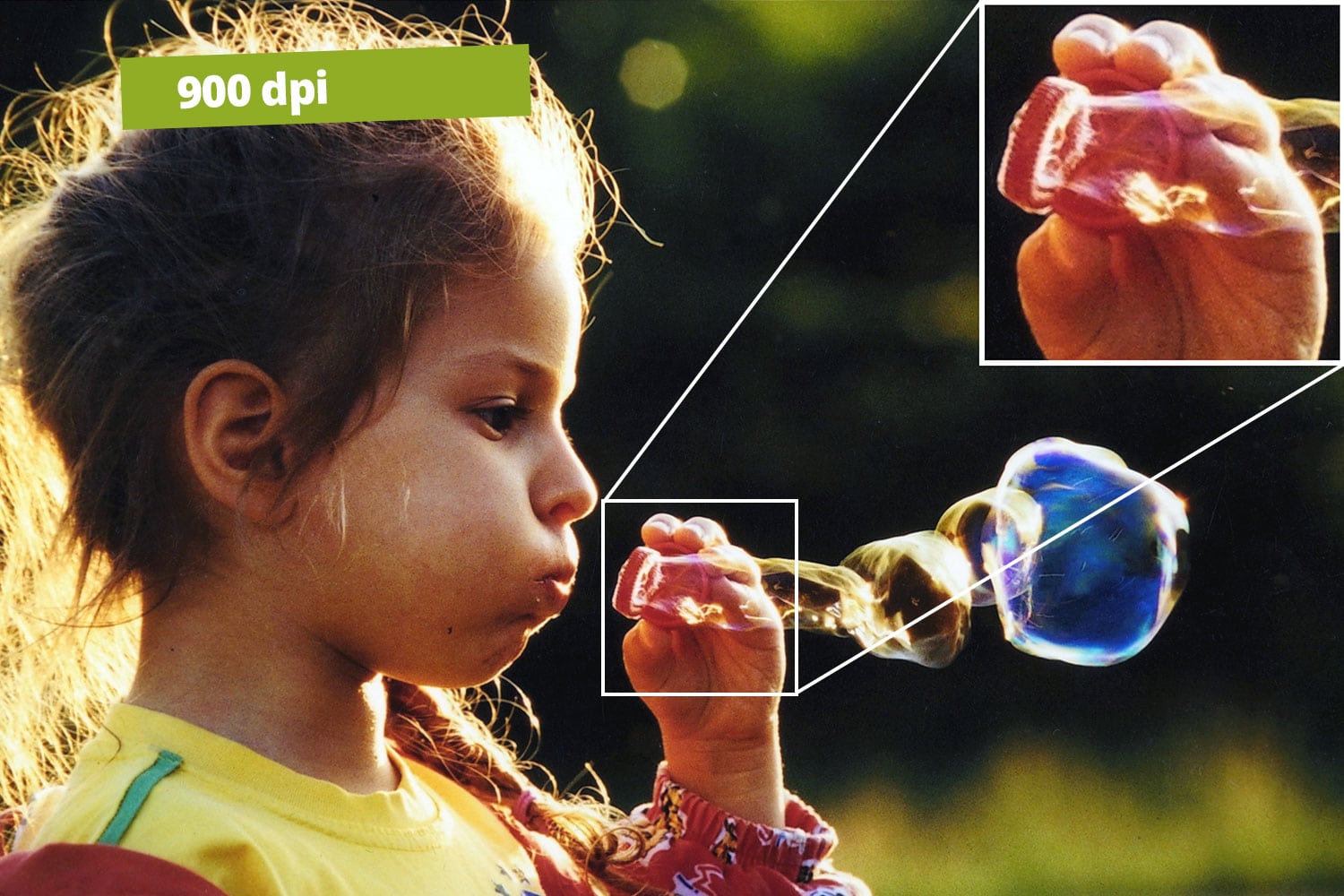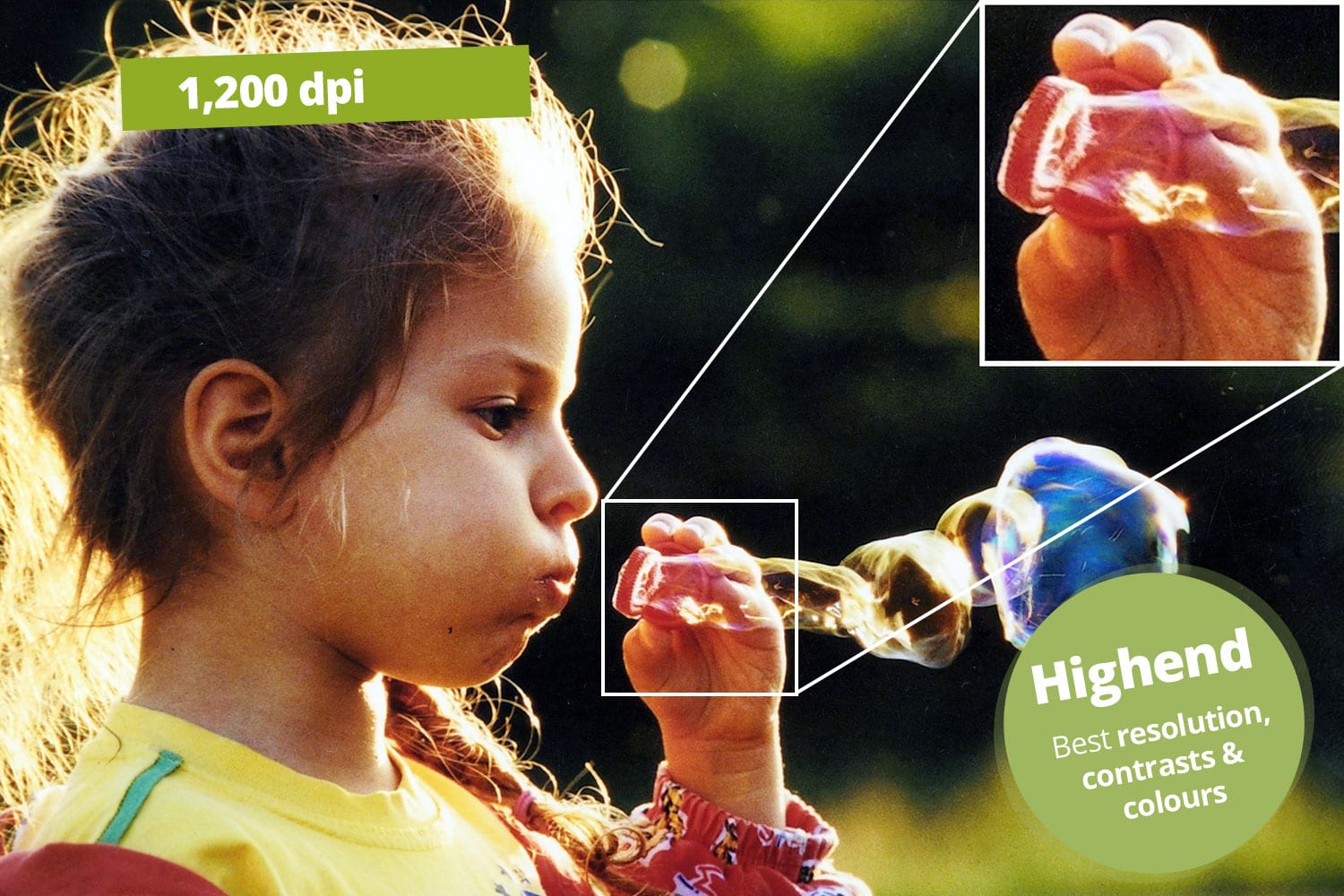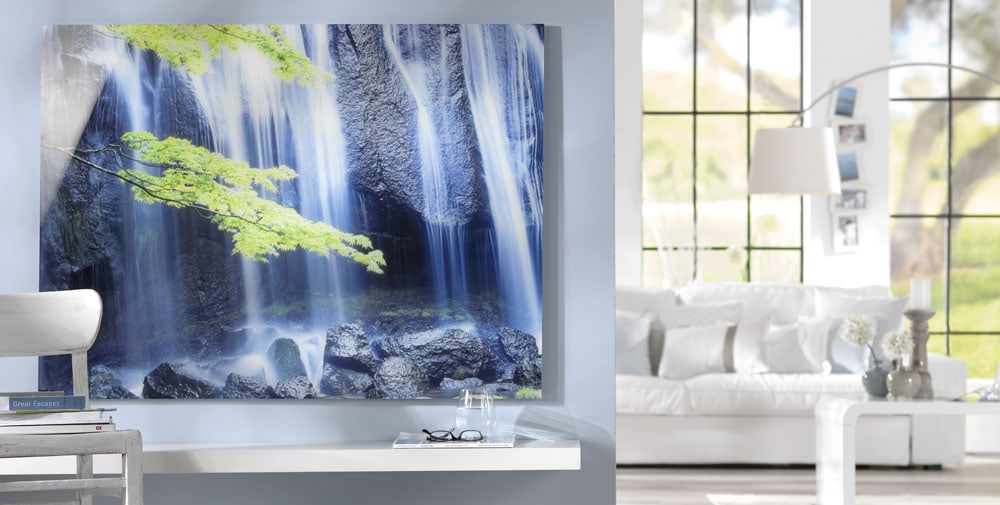 Over the past decades, you have taken many pictures: of day trips and holidays, of family celebrations and your children’s first steps. You probably only have a vague idea of how old your oldest prints actually are, but you know that their age is showing more and more every single day.
Over the past decades, you have taken many pictures: of day trips and holidays, of family celebrations and your children’s first steps. You probably only have a vague idea of how old your oldest prints actually are, but you know that their age is showing more and more every single day.
They are faded, have colour casts or have been otherwise damaged over the years. Before these special memories are lost forever, you want to have your photos digitised. But which resolution is best for you?
Scanning photos – Dpi
600, 900 or 1,200 dpi – these are the three quality levels available for scanning photos at MEDIAFIX. Dpi stands for “dots per inch”. That means this is the number of pixels that are captured on one inch (2.54cm) when scanning photos. It is often said that the higher the dpi value, the sharper the digital image. To speak of image sharpness would not be entirely correct, because if the original photo is already blurred, this will not change when being scanned. But the higher the dpi value when scanning photos, the more image information is scanned from the original, the loss of information is reduced and the finished image file can be enlarged further without the individual pixels becoming visible to the naked eye and the image being “pixelated”.
Scan photos at 600 dpi: For solid detailed enlargements and presentations
If you have basic demands on the quality of your digitised photos, a resolution of 600 dpi is recommended. This already enables detailed enlargements and is particularly suitable for special photos that you would like to present as decorative wall pictures. A scanned photo measuring 10x15cm at 600 dpi results in an image size of 2,362 x 3,543 pixels and makes it easy to enlarge and print. At MEDIAFIX, we digitise photos at 600 dpi for as little as 17p per image in our Standard+ quality level.

Scanning photos at 900 dpi: For higher demands
A resolution of 900 dpi is recommended for photos that need to fulfil higher requirements for enlargements and presentations. With this quality, you can easily enlarge sections and impressively present your photos on Full HD televisions, high-resolution PC screens or projectors. With photo prints in standard format (10x15cm), it is possible to create wall pictures up to A3 format. The scanned images then have a resolution of 3,543 x 5,315 pixels. The photo scan in 900 dpi is available in our Premium quality from just 27p per image.

Scan photos at 1,200 dpi: The best quality for professional purposes
For the highest demands on the quality of your photos, a resolution of 1,200 dpi is the best solution. This not only enables problem-free enlargements, but also professional editing of your digitised photos. With 1,200 dpi, you can present your photos on 4K televisions, high-resolution PC screens or projectors in impressive detail. For photos in standard format (10x15cm), you receive a digitised image of 4,724 x 7,087 pixels, which even enables wall pictures up to DIN A2 format. We digitise photos in highend quality with 1,200 dpi from 37p per image. This gives you the best quality for demanding applications.

Having your photos scanned and printed: Everything is possible with MEDIAFIX Moments
If you want to have your photos scanned and afterwards printed as a poster, you don’t need to struggle looking for a different provider. At MEDIAFIX we not only scan your pictures, but also offer to print your scanned pictures in different formats and onto different materials. With MEDIAFIX Moments you can choose between classic canvas, modern acrylic glass or even individual photo gifts.

Save memories with MEDIAFIX
Don’t let old age destroy your photographs, stop putting up with fading and colour casts. Have your photos scanned today and give your memories a bright future.
Thanks to scanning technology developed in-house, MEDIAFIX is able to offer you a best-price-guarantee.
Do you have any questions? Our customer service will gladly give you advice.
Simply call us: 020 3904438-0
Our phone hours are:
Mon-Fri 10.00 a.m. - 3.00 p.m.



 Have your analogue photos digitised now and enjoy them on your PC, TV or tablet. We scan your images in 600, 900 or even 1,200 dpi. You can currently benefit from our special offer.
Have your analogue photos digitised now and enjoy them on your PC, TV or tablet. We scan your images in 600, 900 or even 1,200 dpi. You can currently benefit from our special offer.